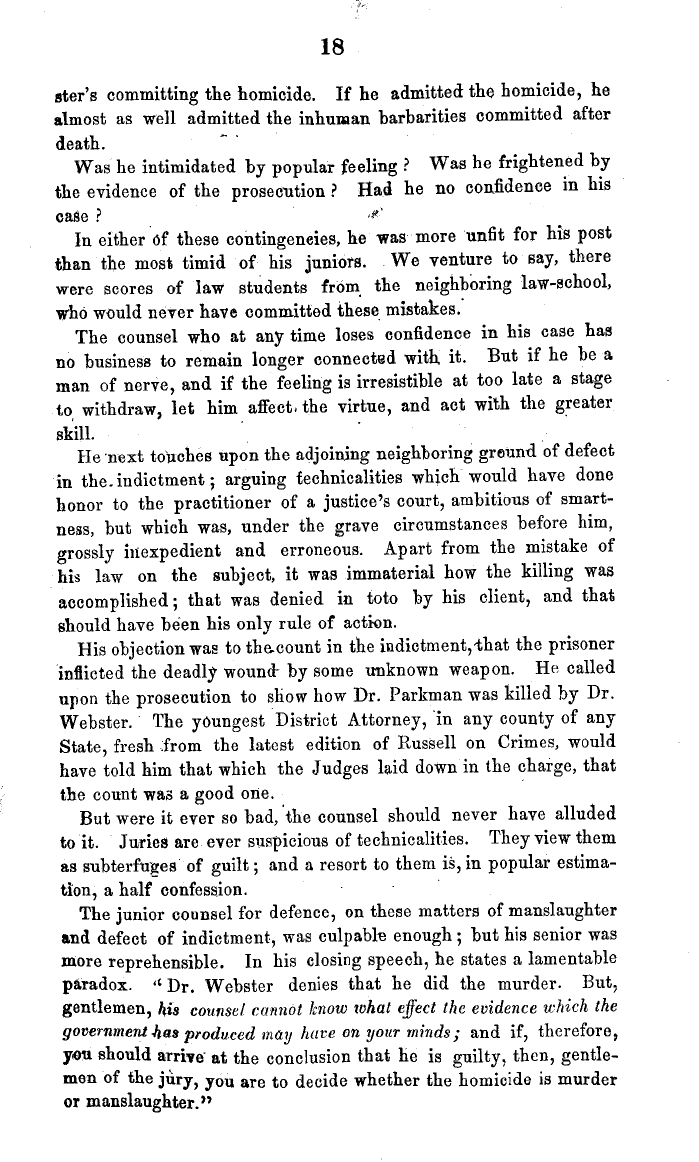|
18
ater's committing the homicide. If he admitted the homicide, he
almost as well admitted the inhuman barbarities committed after
death.
Was he intimidated by popular feeling ? Was he frightened by
the evidence of the prosecution ? Had he no confidence in his
case ? ''
In either of these contingencies, he was more unfit for his post
than the most timid of his juniors. We venture to say, there
were scores of law students from, the neighboring law-school,
who would never have committed these. mistakes.
The counsel who at any time loses confidence in his case has
no business to remain longer connected with, it. But if he be a
man of nerve, and if the feeling is irresistible at too late a stage
to withdraw, let him affect the virtue, and act with the greater
skill.
He 'neat touches upon the adjoining neighboring ground of defect
in the. indictment; arguing technicalities which would have done
honor to the practitioner of a justice's court, ambitious of smart-
ness, but which was, under the grave circumstances before him,
grossly inexpedient and erroneous. Apart from the mistake of
his law on the subject, it was immaterial how the killing was
accomplished; that was denied in toto by his client, and that
should have been his only rule of action.
His objection was to the.count in the indictment,,that the prisoner
inflicted the deadly wound- by some unknown weapon. He called
upon the prosecution to show how Dr. Parkman was killed by Dr.
Webster. - The youngest District Attorney, 'in any county of any
State, fresh :from the latest edition of Russell on Crimes, would
have told him that which the Judges laid down in the charge, that
the count was a good one.
But were it ever so bad, the counsel should never have alluded
to it. Juries are ever suspicious of technicalities. They view them
as subterfu-ges of guilt; and a resort to them i's, in popular estima-
tion, a half confession.
The junior counsel for defence, on these matters of manslaughter
and defect of indictment, was culpable enough; but his senior was
more reprehensible. In his closing speech, he states a lamentable
paradox. " Dr. Webster denies that he did the murder. But,
gentlemen, his counsel cannot know what effect the evidence which the
government has produced inky have on your minds; and if, therefore,
you should arrive at the conclusion that he is guilty, then, gentle-
men of the jury, you are to decide whether the homicide is murder
or manslaughter."
|

